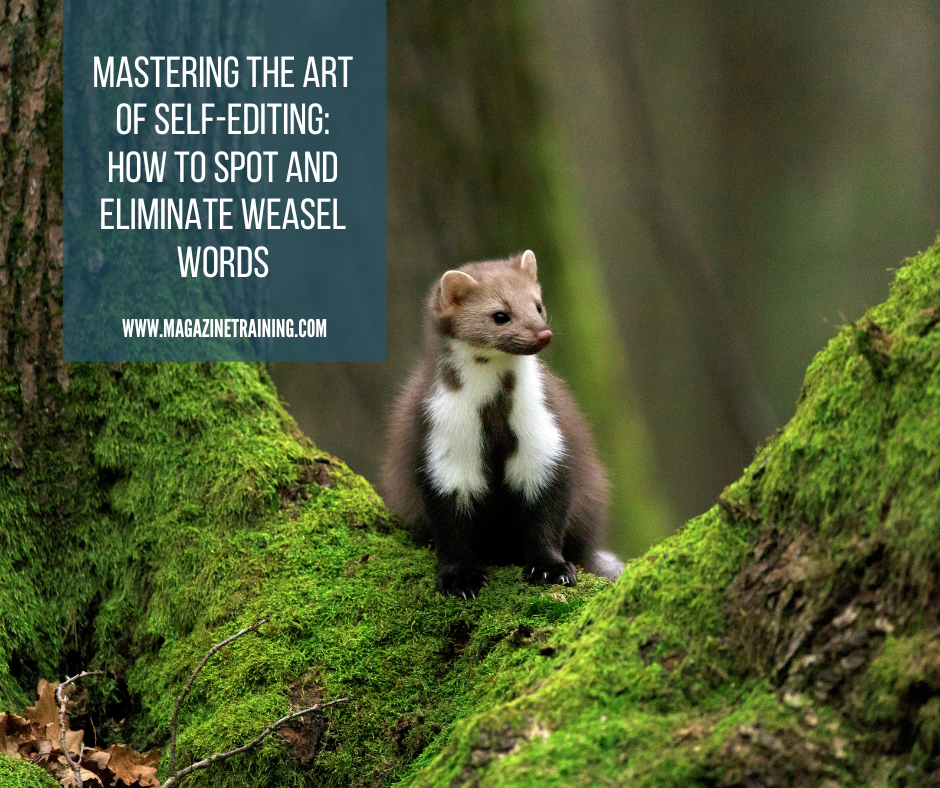
Self-editing is a crucial skill for any writer, especially those looking to refine their work for publication. One of the first steps author Angela Hunt emphasizes in her self-editing process is identifying and removing “weasel words.” These sneaky words clutter your writing, making it less clear and concise.
What are weasel words?
Weasel words are unnecessary words that don’t add value to your sentences. Examples include overused words like just, that, very, suddenly, and was. These words creep into writing like uninvited guests, cluttering up your manuscript without contributing meaningfully to the text.
Why eliminate them?
Much like unnecessary parts in a car, weasel words slow down your writing’s effectiveness and clarity. A clean, direct sentence keeps readers engaged and focused on the story. The elimination of these words makes your writing sharper, more powerful, and more professional.
How to identify weasel words
- Make a list: Create a list of words you tend to overuse. Everyone has their personal favorites!
- Use the search function: Hunt advises using your computer’s “Find and Replace” tool. Replace your weasel words with the same word in ALL CAPS. This makes them stand out, so you can decide whether they serve a purpose.
- Revise with precision: Go back through your manuscript and remove or replace these words with stronger alternatives. For example, instead of “he was very tired,” try “he was exhausted.”
By tightening up your manuscript and cutting out weasel words, you’ll give your writing the clarity and punch it needs to resonate with readers and publishers alike.
**This is based on the workshop “Skillful self-editing: The fastest route to publication” presented by Angela Hunt. You can watch the full workshop on-demand for free.**
Photo by Zdeněk Macháček on Unsplash
Related posts
Magazine Training International’s mission is to encourage, strengthen, and provide training and resources to Christian magazine publishers as they seek to build the church and reach their societies for Christ.

